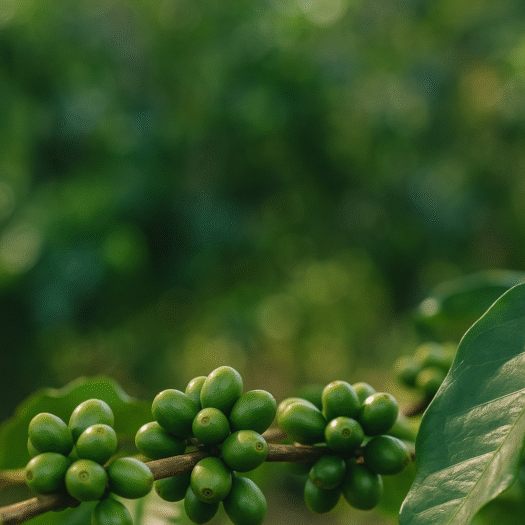Dubai – Qahwa World
The global coffee market navigated a turbulent September as trade tensions, monetary policy shifts, and regulatory uncertainty reshaped investor sentiment and price dynamics. According to the International Coffee Organization’s (ICO) latest Coffee Market Report for September 2025, the sector was influenced by a combination of U.S. tariff policy, an interest rate cut by the Federal Reserve, and developments surrounding the European Union’s Deforestation Regulation (EUDR). Together, these factors created a complex environment of both optimism and caution across producing and consuming regions.
Ay, Amerika Birleşik Devletleri'nin kahveye uyguladığı %50'lik ithalat tarifesini sürdürme kararının ardından artan belirsizlikle başladı. Bu karar, 8 Eylül'de yayınlanan ve bazı ürünleri mevcut tarife rejiminin dışında bırakan başkanlık kararnamesine rağmen alındı. Ancak kahve, iç talebi karşılamak için ABD içinde yeterince üretilebilecek bir ürün olarak görülmediğinden muafiyet listesinde yer almadı. Politika duruşu, özellikle küresel arzın zaten kısıtlı olduğu ve yurtiçi kavurma maliyetlerinin arttığı bir ortamda tüccarları ve ithalatçıları diken üstünde tuttu.
The ICO report noted that the continued imposition of tariffs has dampened export momentum from major producing countries, particularly Brazil, which remains the world’s largest coffee supplier. Exporters faced not only the direct cost of tariffs but also indirect consequences such as higher insurance premiums and delayed shipments. The United States, typically the second-largest destination for Brazilian coffee after Germany, saw imports fall sharply in August — down 46% year-on-year and 26% month-on-month, according to data from Cecafé.
Ancak ay ilerledikçe Washington ve Brezilya arasındaki diplomatik buzların erimesi iyimserlik yarattı. Her iki ülkenin üst düzey yetkilileri arasında New York'taki Birleşmiş Milletler Genel Kurulu çerçevesinde yapılan görüşmeler, piyasa analistleri tarafından ticari gerginliklerin çözümüne yönelik potansiyel bir ilk adım olarak yorumlandı. Her ne kadar resmi bir değişiklik duyurulmamış olsa da bu diyalog, özellikle ABD'de enflasyonist baskının azalmaya devam etmesi halinde, cezalandırıcı tarifelerin yılın ilerleyen dönemlerinde gözden geçirilebileceği konusunda yatırımcılara güvence verdi.
Adding to the month’s market developments, the U.S. Federal Reserve cut its benchmark interest rate by 25 basis points on 17 September — its first such move since early 2024. The decision aimed to support economic growth amid signs of slowing consumer spending and lower manufacturing output. For coffee traders, the rate cut brought mixed implications. On one hand, cheaper borrowing encouraged speculative activity in commodity markets, which helped lift prices. On the other, the stronger U.S. dollar that followed the announcement increased costs for buyers using other currencies, especially in emerging markets.
The ICO observed that the daily volatility of the ICO Composite Indicator Price (I-CIP) rose to 13.8% in September, up from 11% the previous month, partly driven by the interplay of monetary and trade factors. The organization emphasized that such fluctuations reflect not only speculation but also genuine uncertainty about the future of trade flows and regulatory frameworks that govern the industry.
In Europe, a different kind of uncertainty unfolded. The European Commissioner for Environment, Oceans, and Fisheries, responsible for overseeing the Deforestation Regulation (EUDR), expressed concern over the readiness of the EU’s technical system for tracing commodities such as coffee, cocoa, and palm oil. The Commissioner admitted that the digital platform designed to monitor compliance might not be fully operational in time for the regulation’s official start date in January 2026. As a result, Brussels is now considering a one-year postponement of the EUDR’s implementation.
This potential delay was met with relief from coffee-producing nations and exporters, many of whom have voiced apprehension over the costs and logistical burdens of compliance. The regulation, adopted in 2023, requires companies importing into the EU to prove that their products do not contribute to deforestation or forest degradation. For coffee, that means exporters must provide precise geolocation data for every farm and ensure traceability across the supply chain. While the regulation aims to promote sustainable trade, several producing countries, including Ethiopia, Uganda, and Honduras, have warned that smaller farmers could be excluded from the European market if compliance deadlines remain too strict.
Market participants see the proposed delay as a temporary reprieve. “It gives exporters and cooperatives valuable time to adjust and strengthen traceability systems,” the ICO noted. However, the organization also cautioned that postponement does not remove the long-term challenge of compliance. Producers who fail to invest in sustainable certification and farm-level data systems risk losing access to the world’s most regulated and high-value coffee market.
Eylül sonunda, gümrük tarifeleri, parasal genişleme ve politika belirsizliğinin birleşik etkileri piyasa duyarlılığını şekillendirmeye devam etti. ICO Bileşik Gösterge Fiyatı, Ağustos ayına göre %9,3 artışla pound başına ortalama 324,62 ABD senti oldu ve son iki yılın en yüksek seviyesine ulaştı. Ancak fiyat artışının arkasında farklı bölgesel gerçekler yatıyordu: Vietnam ve Kolombiya'daki ihracatçılar güçlü talep ve rekabetçi lojistikten yararlanırken, Brezilya ve Orta Amerika'daki üreticiler artan ihracat maliyetleri ve ticaret erişimi konusundaki siyasi gerginlikle karşı karşıya kaldı.
The report concluded that these intersecting economic and regulatory developments have pushed the coffee industry into a phase of structural adaptation. With monetary policy softening in the United States, trade negotiations cautiously reopening, and the EU potentially adjusting its sustainability timeline, the final quarter of 2025 is expected to test the industry’s resilience. Analysts agree that while prices may remain high in the short term, long-term stability will depend on how swiftly producers, traders, and regulators can align under a more predictable and sustainable framework.
As the ICO noted, the coffee market of late 2025 is no longer defined solely by supply and demand but by the policies, regulations, and economic instruments that govern it. The cup of coffee on the global stage has never been more entangled with diplomacy, finance, and environmental accountability.
The post Global Coffee Market Reacts to Tariffs, Rate Cuts, and EU Regulation Uncertainty appeared first on Qahwa World.




